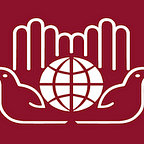City-Scaled Self-Recovery: The Case of Canaan
For the inaugural Design for Humanity Summit in June of 2018, Anna Konotchick, Habitat for Humanity International, Asia and the Pacific, Director of Housing and Human Settlements American Red Cross addressed the motivation behind humanitarian work in in his opinion piece.
Below is Konotchick’s contribution to the newly released Design for Humanity Summit Yearbook available for download here.
With a population estimated at over 300,000, Canaan could now be considered Haiti’s third largest city, nestled 15 kilometeres north of Port au Prince. It is the product of the hope and dogged determination of Haiti’s earthquake affected families to create their vision of a new life and new city.
Canaan grew exponentially and unexpectedly from the displaced persons Camp Corail, established in May 2010 by the government and international actors, which was meant to be ‘temporary’. However, by 2013, the area had rapidly urbanized and the UN estimated that Canaan residents had invested over $100 million of their own funds in home and infrastructure construction. The settlement includes over 500km of dirt roads, a network of informal electricity connections, and over 200 schools and churches.
While Canaan residents built this informal city, much of the international community and government focused earthquake recovery efforts elsewhere. They were unsure how to navigate the legal and political grey area caused by this unplanned urbanization, so Canaan evolved independently. However, families were also reconstructing pre-earthquake vulnerabilities: Canaan has the highest persistence of cholera in Haiti, and infrastructure and home construction is of poor quality.
Humanitarians should respect this capacity of disaster-affected families to lead recovery. They must also have the courage to navigate grey political areas, and prioritize supporting these affected families to rebuild their lives and communities safely.
By 2015, a coalition of national and international actors led by the Haitian government recognized the proto-city and its growing need for regularization and basic services. This was accompanied by over $15 million in funding for things like clean water, roads and the first public school.
This bold leadership by the government and subsequent program in Canaan was not inevitable. It depended upon the persistent dedication of technical staff in government and international agencies, individuals willing to navigate political grey areas, willing to work across organizational boundaries, and willing to face the risk of not acting.
Learn more about the Design for Humanity Summit II, taking place June 21, 2019 at Fordham University’s McNally Amphitheatre here.
About the IOM — UN Migration
Established in 1951, IOM is the leading inter-governmental organization in the fi eld of migration and works closely with governmental, intergovernmental and non-governmental partners. With 173 member states, a further 8 states holding observer status and offices in over 100 countries, IOM is dedicated to promoting humane and orderly migration for the benefit of all. It does so by providing services and advice to governments and migrants. IOM works to help ensure the orderly and humane management of migration, to promote international cooperation on migration issues, to assist in the search for practical solutions to migration problems and to provide humanitarian assistance to migrants in need, including refugees and internally displaced people
About the IIHA
The Institute of International Humanitarian Affairs (IIHA) prepares current and future aid workers with the knowledge and skills needed to respond effectively in times of humanitarian crisis and disaster. Our courses are borne of an interdisciplinary curriculum that combines academic theory with the practical experience of seasoned humanitarian professionals. The IIHA also publishes on a wide range of humanitarian topics and regularly hosts a number of events in the New York area, including the annual Humanitarian Blockchain Summit and Design for Humanity Summit.
For media inquiries please contact:
Camille Giacovas
Communications & Research Officer, IIHA
cgiacovas@fordham.edu
Angela Wells
Public Information Officer for the International Organization for Migration’s Department of Operations and Emergencies
awells@iom.int
